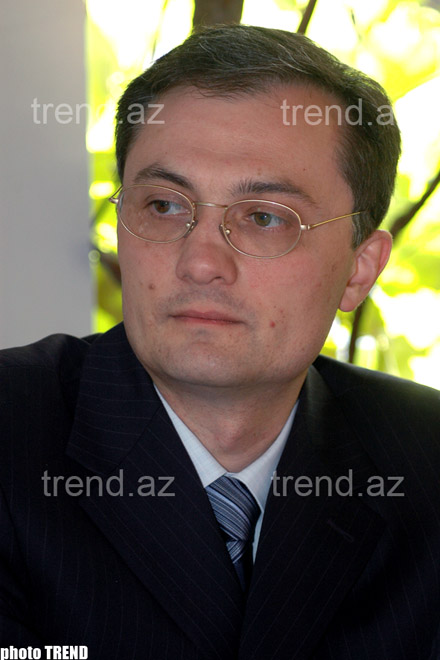Azerbaijan, Baku, March 19 / Trend , corr. N.Ismaylova /
Head of Baku Interbank Currency Exchange, Farhad Amirbeyov, spoke with Trend in an exclusive interview.
Trend : How is it real to make trade operations between countries, for example with Turkey, in national currencies?
Farhad Amirbeyov: Realizing trade and other operations in national currencies is possible in following cases:
- national currencies must be freely converted;
- national financial markets must have a high liquidity and a depth. The protection tools of currency risks must be present;
- if necessary, the Central Banks must support the steady ratio of currencies, i.e., must pursue coordinated policy on the money and currency markets;
- business associations must present demand for the currency of the country, with which commercial and other operations are realized, this demand are accumulated by the banks;
- commercial and Central Banks must obtain free access to markets of those countries, whose currencies participate in the calculations in the regional trade;
- it is necessary to have the high-liquid and large markets for currencies.
Actually the currencies of the countries, which begin to participate in the international (regional) trade, acquire the features of reserve currencies. Due to this, it seems that still manat does not correspond to the requirements, presented to the currencies which are prepared attend international (regional) trade.
Q: How is this question urgent in conditions of global crisis?
A: With regards to the question of the urgency of strengthening national currencies and also possible appearance of new currencies, this question is not simple and obvious. The current crisis creates unique chance for the appearance of new financial centers in the world. There is high probability that these centers will be formed in those countries, which know how to keep their currencies from the devaluation, and also can provide emitters with an access to capital. Moreover there is high probability that the present crisis will "kill" numerous transnational banks.
The countries, which can rapidly create high-liquid and deep markets, based on the national currencies, and also be rapidly integrated with the markets of their basic trading partners, will undoubtedly obtain large market and political advantages in the new, post-crisis world.
Q: What is the stage of process of establishing a regional financial center in Tbilisi? And how is the co-operation active with the Tbilisi Interbank Currency Exchange?
A: As before, I consider urgent the project with Tbilisi Interbank Currency Exchange. However, firstly it needs to consolidate internal resources.
Q: What is your estimation of prospects of exchange question in Azerbaijan under current conditions?
A: This crisis is already third one in the newest Azerbaijan history. The crisis in the beginning and end of 1990 and the current crises strongly differ from each other both in their nature and in the consequences. Obvious is the fact that Azerbaijan with good preparedness approached the current world crisis. The National Bank of Azerbaijan and national banking system very rapidly reacted to the calls of time. It was understandable that it is impossible and dangerous to hope only for "resale" relative to the cheap resources, attracted from other countries to the local market.
It is necessary for Azerbaijan's market to have high-liquid money, currency and stock markets in order to compensate the influence of the current and future financial crises. The creation of these markets is impossible without the participation of State agencies, firstly National Bank of Azerbaijan, Ministry of Finance, State Securities Committee and participants of the financial market. Exchanges have always been very important institute of the financial market. Specifically, exchanges take the place between the money authorities (regulators) and participants of the market. Their role is not only to organize and conduct trades and accounts - they also frequently act as the catalysts of the matured changes and introduce numerous innovations.
Do you have feedback? Contact our journalist at: [email protected]






